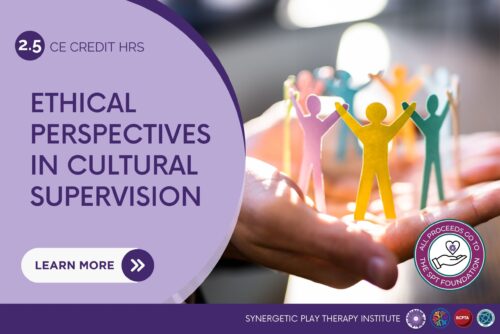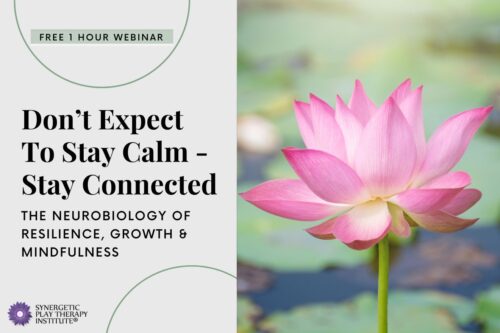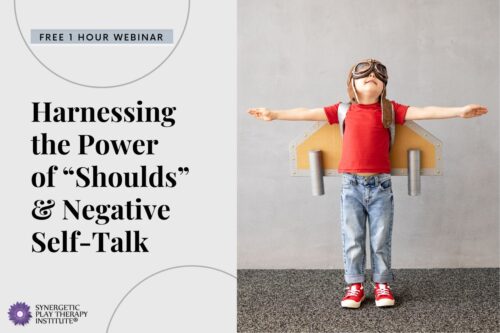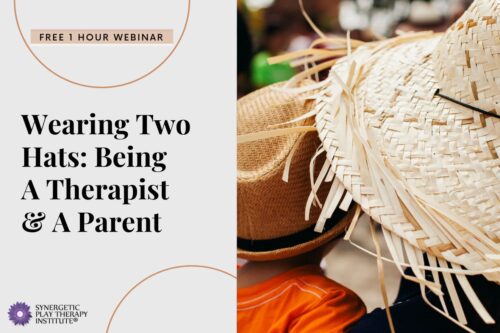-

 In today's diverse and globalized world, effective mental health supervision requires more than theoretical expertise; it demands a profound understanding of ethical considerations and cultural dynamics. Join us for a dynamic course designed to equip mental health and play therapy supervisors with the essential knowledge to navigate the complexities of working across cultures ethically and effectively. This course will delve into critical cultural and ethical topics that will transform your supervision practice, including:
In today's diverse and globalized world, effective mental health supervision requires more than theoretical expertise; it demands a profound understanding of ethical considerations and cultural dynamics. Join us for a dynamic course designed to equip mental health and play therapy supervisors with the essential knowledge to navigate the complexities of working across cultures ethically and effectively. This course will delve into critical cultural and ethical topics that will transform your supervision practice, including:- Fostering an Inclusive & Respectful Supervisory environment: Gain understanding and develop cultural competence and sensitivity so that your supervisees feel seen and supported.
- Exploring Ethical Dilemmas in Cross-Cultural Supervision: Discuss and identify solutions to common dilemmas from a cultural and ethical lens.
- Effectively Support Supervisees: Learn how to be culturally aware and inclusive of your supervisees from diverse backgrounds, promoting their professional development and well-being.
 In response to COVID-19, the Synergetic Play Therapy Institute began offering free webinars to address the challenges, stress and impact that therapists, teachers, parents, and those on the frontlines were facing. Since then, we've continued to offer free webinars to support you on your professional and personal life's journey. Please enjoy free access to these very special webinars. You may view and share it with as many people as you feel it would help.
In response to COVID-19, the Synergetic Play Therapy Institute began offering free webinars to address the challenges, stress and impact that therapists, teachers, parents, and those on the frontlines were facing. Since then, we've continued to offer free webinars to support you on your professional and personal life's journey. Please enjoy free access to these very special webinars. You may view and share it with as many people as you feel it would help. In this free one-hour webinar, you’ll understand how to manage your stress, fear, anxiety and depression and why it’s important to do so … And that’s not even the best part - You’ll be shown mindfulness strategy after mindfulness strategy, offered understanding of the neuroscience behind each, and guided through how to use them - go from “not just a good idea” to why you would do it and when you would use it.
In this free one-hour webinar, you’ll understand how to manage your stress, fear, anxiety and depression and why it’s important to do so … And that’s not even the best part - You’ll be shown mindfulness strategy after mindfulness strategy, offered understanding of the neuroscience behind each, and guided through how to use them - go from “not just a good idea” to why you would do it and when you would use it. Lisa Dion and her dear friend, Peter Bliss join forces again to support you in staying connected during the Holidays ....with the message that staying calm is not the objective or solution for getting through not only the challenges and uncertainty of the world we live in right now, but also this holiday season (because as we know, it's not always about cheer and jubilee).
Lisa Dion and her dear friend, Peter Bliss join forces again to support you in staying connected during the Holidays ....with the message that staying calm is not the objective or solution for getting through not only the challenges and uncertainty of the world we live in right now, but also this holiday season (because as we know, it's not always about cheer and jubilee). Chances are, you read the title of the webinar and thought, "What! You want me to do what with rejection?!" (We know ... it might not quite make sense yet.) Or perhaps you know that rejection has a purpose in your life, but you still find yourself having a "love/hate" relationship with it. Either way, rejection can be one of the toughest things to experience - it gets right down to your core self and brings up all of your "Am I ok?" feelings. And this is what we're going to talk about in this one-hour free webinar! ... and more specifically, how to embrace it! - like you're best-est of friends (Yes, you heard that right too.)
Chances are, you read the title of the webinar and thought, "What! You want me to do what with rejection?!" (We know ... it might not quite make sense yet.) Or perhaps you know that rejection has a purpose in your life, but you still find yourself having a "love/hate" relationship with it. Either way, rejection can be one of the toughest things to experience - it gets right down to your core self and brings up all of your "Am I ok?" feelings. And this is what we're going to talk about in this one-hour free webinar! ... and more specifically, how to embrace it! - like you're best-est of friends (Yes, you heard that right too.) In this workshop, participants will delve into the world of "shoulds" and negative self-talk; those internalized expectations and societal norms that often shape our thoughts, behaviors, and decisions while influencing our lives, physiology, and well-being. During this hour, we will uncover the complex interplay of factors that contribute to the formation of "shoulds" and most importantly, the unique role they play in our psychology. Understanding how “shoulds” and negative self-talk form, the connection they have with our physiology, and the purpose behind them will help you reframe these patterns as valuable feedback systems on the pathway toward authenticity and congruency. Don’t miss this opportunity to learn how to harness the power of “shoulds” and negative self-talk for personal growth and self-discovery! And, one of the best parts is that you will be able to take this information and have a better understanding of what is happening with your clients and loved ones, as well!
In this workshop, participants will delve into the world of "shoulds" and negative self-talk; those internalized expectations and societal norms that often shape our thoughts, behaviors, and decisions while influencing our lives, physiology, and well-being. During this hour, we will uncover the complex interplay of factors that contribute to the formation of "shoulds" and most importantly, the unique role they play in our psychology. Understanding how “shoulds” and negative self-talk form, the connection they have with our physiology, and the purpose behind them will help you reframe these patterns as valuable feedback systems on the pathway toward authenticity and congruency. Don’t miss this opportunity to learn how to harness the power of “shoulds” and negative self-talk for personal growth and self-discovery! And, one of the best parts is that you will be able to take this information and have a better understanding of what is happening with your clients and loved ones, as well! Therapists and clinicians are always experiencing a secondary impact when working with clients who have experienced or are experiencing trauma, crisis, or challenge. A big statement, we know, but it's true. We can't avoid being impacted and it has a lot to do with the brain's mirror neuron system. When we're in the midst of listening or playing through the trauma with the child, we're tracking our client's non-verbal cues. And as we're tracking our client's non-verbal cues, their non-verbal cues are giving us insight into what is happening within them. THIS puts us directly IN the experience with our clients. We'll experience the fear together, the anxiety together, the sadness together, the overwhelm together - Whatever is going on, we'll experience it together including the trauma. That's why we would love to have you join us for this FREE 1-hour webinar to help you navigate the secondary traumatization that can often come along with this profession that we love!
Therapists and clinicians are always experiencing a secondary impact when working with clients who have experienced or are experiencing trauma, crisis, or challenge. A big statement, we know, but it's true. We can't avoid being impacted and it has a lot to do with the brain's mirror neuron system. When we're in the midst of listening or playing through the trauma with the child, we're tracking our client's non-verbal cues. And as we're tracking our client's non-verbal cues, their non-verbal cues are giving us insight into what is happening within them. THIS puts us directly IN the experience with our clients. We'll experience the fear together, the anxiety together, the sadness together, the overwhelm together - Whatever is going on, we'll experience it together including the trauma. That's why we would love to have you join us for this FREE 1-hour webinar to help you navigate the secondary traumatization that can often come along with this profession that we love! Oh yes! You likely know what we're talking about ... the feeling of never being "good enough" ... holding yourself back because of pervasive feelings of shame and self-doubt ... the constant worry/anxiety of not measuring up or fear of being outed as a fraud. It may trap you in a cycle of self-doubt, erode your courage and confidence, undermine your success, and lead to missed opportunities, unfulfilled goals, and a tendency to hide or hold yourself back. Sound familiar?... [Sigh ] ... Let's take a deep breath and acknowledge how challenging and debilitating "imposter syndrome" can be. Lisa wants to help you begin to overcome imposter syndrome in your life.
Oh yes! You likely know what we're talking about ... the feeling of never being "good enough" ... holding yourself back because of pervasive feelings of shame and self-doubt ... the constant worry/anxiety of not measuring up or fear of being outed as a fraud. It may trap you in a cycle of self-doubt, erode your courage and confidence, undermine your success, and lead to missed opportunities, unfulfilled goals, and a tendency to hide or hold yourself back. Sound familiar?... [Sigh ] ... Let's take a deep breath and acknowledge how challenging and debilitating "imposter syndrome" can be. Lisa wants to help you begin to overcome imposter syndrome in your life. Have you found it difficult, confusing, tiring, or maybe even exhausting wearing your two hats day in and day out? One as a therapist and the other as a parent?... Lisa totally gets it!!...as both a therapist and a parent these past 15 years. This one-hour recorded webinar that will help you discover ways to be the most important toy in both the playroom and in your own home!
Have you found it difficult, confusing, tiring, or maybe even exhausting wearing your two hats day in and day out? One as a therapist and the other as a parent?... Lisa totally gets it!!...as both a therapist and a parent these past 15 years. This one-hour recorded webinar that will help you discover ways to be the most important toy in both the playroom and in your own home! Being a therapist is not an easy job as it requires an on-going commitment to show up day in and day out when your clients need you ... But what happens when the people we are serving aren't the only ones in crisis? What happens when we are in crisis too? (We are human after all). And what happens if it's the same crisis?! In this special one-hour webinar (Part 3 of Regulating Through the Coronavirus webinar series), you'll reconnect to yourself and gain greater internal resources to help you overcome many of the challenges of being a therapist right now.
Being a therapist is not an easy job as it requires an on-going commitment to show up day in and day out when your clients need you ... But what happens when the people we are serving aren't the only ones in crisis? What happens when we are in crisis too? (We are human after all). And what happens if it's the same crisis?! In this special one-hour webinar (Part 3 of Regulating Through the Coronavirus webinar series), you'll reconnect to yourself and gain greater internal resources to help you overcome many of the challenges of being a therapist right now. This inspiring one-hour course dives into the transformative role of play therapy in supporting neurodivergent children. Gain insights into how play can help address processing differences, executive functioning challenges, and sensory sensitivities equipping you to meet these unique profiles with confidence and compassion. Guided by over 20 years of professional and personal experience, Cary Hamilton will reveal practical, neurodiversity-affirming, play-based interventions designed to foster connection, emotional regulation, and resilience. You’ll walk away with actionable strategies to enhance your clinical practice, deepening your ability to create meaningful and effective therapeutic relationships with neurodivergent children. Don’t miss this opportunity to expand your skills, enrich your practice, and make a lasting impact on the lives of neurodivergent children and their families!
This inspiring one-hour course dives into the transformative role of play therapy in supporting neurodivergent children. Gain insights into how play can help address processing differences, executive functioning challenges, and sensory sensitivities equipping you to meet these unique profiles with confidence and compassion. Guided by over 20 years of professional and personal experience, Cary Hamilton will reveal practical, neurodiversity-affirming, play-based interventions designed to foster connection, emotional regulation, and resilience. You’ll walk away with actionable strategies to enhance your clinical practice, deepening your ability to create meaningful and effective therapeutic relationships with neurodivergent children. Don’t miss this opportunity to expand your skills, enrich your practice, and make a lasting impact on the lives of neurodivergent children and their families!

